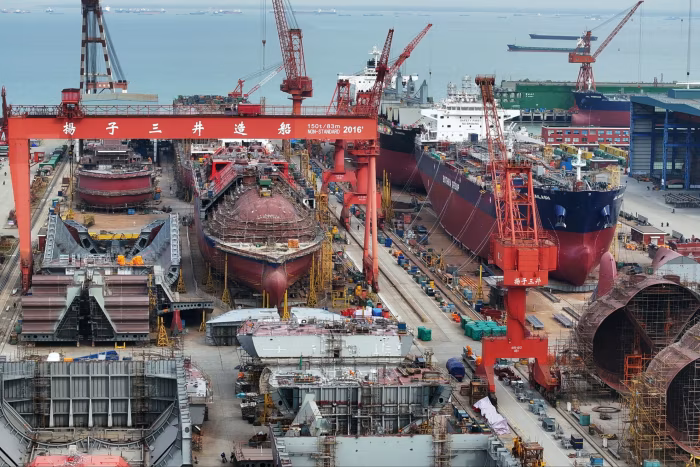A proposal by the Trump administration to impose significant levies on ships built in China has raised concerns within the US agricultural sector.
The proposal, which recommends fees of up to $1.5 million per vessel entering US ports, could severely disrupt the export of key commodities such as wheat, corn, and soybeans, according to industry experts.
The fees, which would apply to Chinese-built ships and those operated by companies using such vessels, have sparked panic among US exporters. Freight operators have stopped providing bids on bulk shipments or have drastically raised prices, making it difficult for farmers to maintain their businesses. United Grain Corporation, a bulk grain exporter, reported a 40% increase in shipping costs and urged the US Trade Representative to reconsider the plan.
The US Soybean Export Council’s CEO, Jim Sutter, expressed frustration, noting that farmers should not bear the burden of this proposal, which targets shipbuilders rather than the agricultural sector. The agricultural industry, already reeling from the impact of trade wars and retaliatory tariffs, faces further pressure with the proposed fees.
Approximately 60% of the global ocean carrier fleet could be impacted, increasing transportation costs to levels that could make large-scale crop production unprofitable. US farmers rely on international markets for 20% of their sales, with China being one of their primary trading partners. For many, the added shipping costs would make it difficult to remain competitive in the global market.
Experts estimate that the proposal could lead to increased transportation costs for bulk shipments, including fertilizers essential for US crop production. In 2024, nearly 46% of US bulk fertilizer imports were carried by Chinese-built dry bulk carriers, and the new fees could significantly raise costs, further squeezing margins for farmers already facing high input prices.
The proposal, part of a broader effort to challenge China’s dominance in maritime trade, has drawn mixed reactions. While some sectors, like steel manufacturers, support the plan, the agricultural community fears that the fees will not only hurt their bottom line but also reduce the global competitiveness of US farm products.
The US Trade Representative’s proposal follows months of investigation into how to curb China’s maritime influence. However, critics argue that the levies will only harm US exporters without effectively challenging China’s shipping industry.
With input from the Financial Times and Bloomberg.










The latest news in your social feeds
Subscribe to our social media platforms to stay tuned